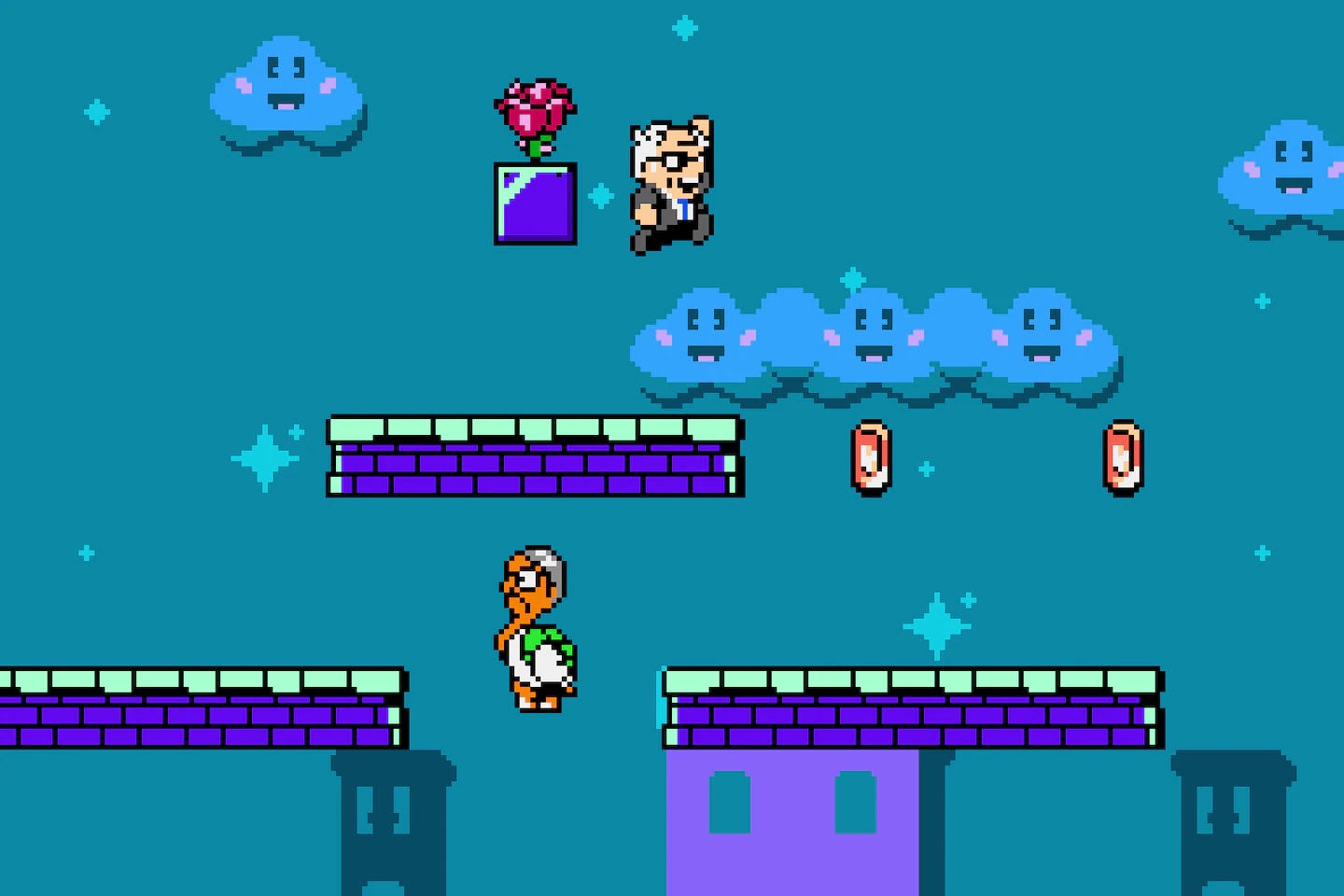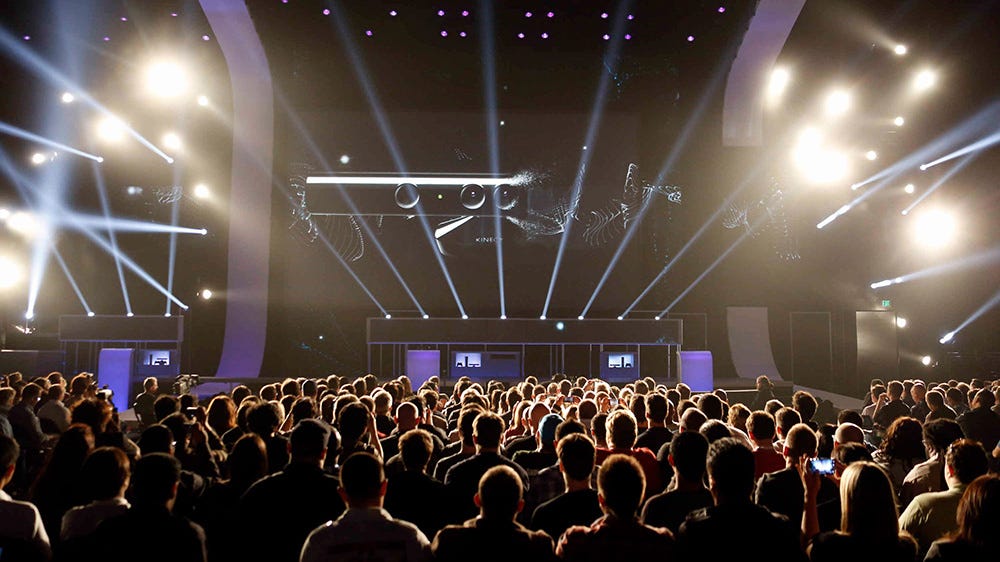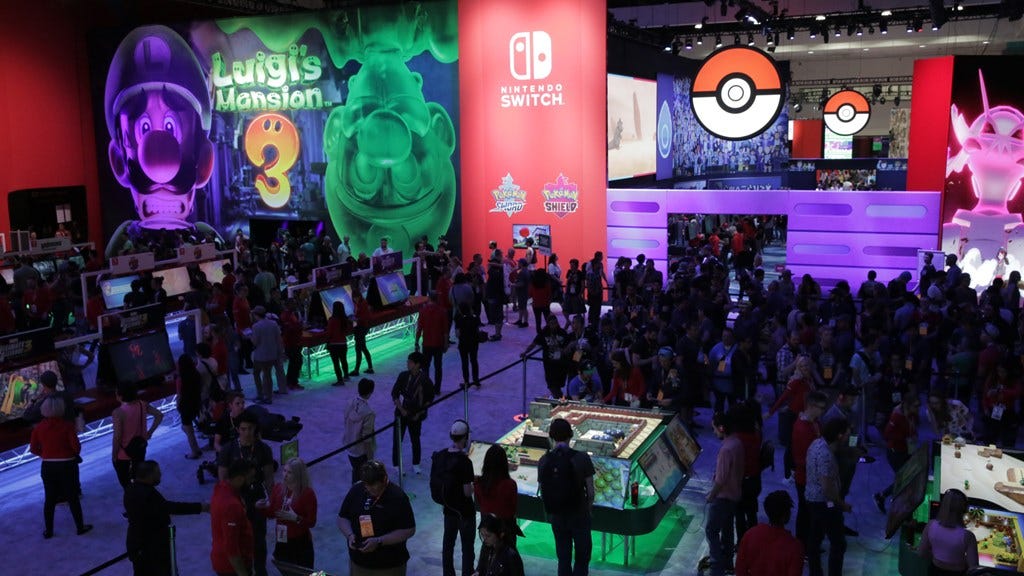E3: From Albatross to Phoenix
March 11, 2020Finding opportunity in E3’s death with its rebirth
Call it a cancelation, call it a postponement, but the fate of E3 — be it a months-long quarantine or its inevitable demise — was both inevitable and necessary.
That’s easier to see if you view the annual tradeshow as a bird — or two birds to be specific.
The fate of E3 was entwined with its inception: a show created to put a spotlight on a form of entertainment that was both underappreciated and misunderstood and also a convenient location to land sales deals with big-box retailers.
When it first launched in 1995, E3 did much to break video games away from the white noise of consumer electronics, both figuratively and literally. Prior to that first E3, video games only had the Consumer Electronics Show in which to highlight their goods, and each year that trade show pushed gaming further and further away from the heart of its convention.
E3 was born out of annoyance and necessity and quickly became the place where most buying decisions were made by big retailers. But over the years those purchase decisions shifted to being made well before E3, and perhaps more importantly, the rise of digital sales and near-death of box shops like GameStop have minimized the importance of physical sales.
Another purpose the show served, the one given the most voice each year, was how the show brought the industry together for one week and drew the attention of international media — albeit at a high price to game developers and publishers who want floor space.
But things have changed so drastically since the mid-90s that once what was an important, driving force of the game industry has become not just unnecessary, but in many ways an embarrassment.
Gaming has so far occluded other forms of entertainment that the notion that gaming needs to create a self-indulgent limelight isn’t just out of sync with reality, it projects an increasing level of harmful insecurity.
The more video games drag Hollywood to E3, the more the industry seems to be saying that it isn’t deserving of its massive following and impact on not just Hollywood, but entertainment and culture. While once a by-product of television, gaming has transcended that idiot box to become the creation of any screen, all screens, powered more by a blossoming imagination then the deadening of creative thought.
But E3 remains.
Why that is so is simply a matter of accounting and momentum.
The Entertainment Software Association — which both lobbies on behalf of the game industry and runs E3 for it — makes nearly half of its annual budget from the show.
The ESA’s most recent tax filing (2017’s fiscal year ended in March 2018 and the 990 was filed with the IRS on Feb. 13 2019) shows that the ESA made about $17 million from E3. That’s out of a total of about $35.1 million in revenue for the year.
It spent about $8.19 million on conferences (one can presume that’s mostly E3), out of a total of $36.2 million in expenses.
E3 is a big moneymaker for the ESA, and the board — which is made up of leaders in the game industry and which also has final say on everything the association does — knows this.
On top of that, E3’s momentum, built on nearly a quarter of a century of events, is the sort of thing that’s hard to stop.
So even if the ESA and its board wanted to stop it, it would be difficult to simply pull the plug. In many ways, E3 has become an albatross around the industry’s neck.
Never has that been more obvious than in the past year, when a series of events rocked both the association and its annual event.
The ESA itself remained in disarray last year even as it hosted E3 — dealing with the departure of its president and what numerous current and past employees told Variety was a toxic environment rife with internal politics, witch hunts, and in-fighting.
The show was also struggling to find its footing, pulled between its long history of media-centric press conferences and meeting spaces and the growing impact of influencers, livestreams, and downloadable demos.
Nintendo’s booth transformed into a playspace, PlayStation skipped the show, Microsoft moved next door. It was a mess.
Shortly after the 2019 show, the ESA’s database of journalists, YouTubers, and streamers, leaked, laying out more than 2,000 names, phone numbers, addresses, and emails for all to see on the association’s site.
Then this February, Geoff Keighley announced he wouldn’t be putting on the E3 Coliseum event — a highlight for public attendees that featured on-stage interviews and performances — for this year’s show. A month later, recently signed creative director Iam8bit dropped out of the show completely, with no explanation.
With fears of COVID-19 growing, no sense of how acceptable or even allowed public gathering will be, come June, the ESA this week officially cancel its big show.
Where many see death, I see an opportunity; one that could transform E3 from an albatross into a phoenix.
E3 in its typical form is unlikely this year, even postponed, so why not embrace the personal space and turn E3 into Free3?
All of the major developers who host press conferences already stream those events. They still should, just without any live audience.
For the rest of the week, look to Nintendo for the best way to proceed.
While Nintendo almost always has the best floor space, packed with creative elements and often focused on a singular game, what really drives the week for the company is its online presence. They do a week of livestreams: playing their games, interviewing their developers, talking about and with their fans.
The entire industry should go online-only for the week and not charge a penny to participate.
Then next year reset, rise from the ashes as something new, powerful, and needed.
E3 still has a place in this world, but it’s not to spotlight gaming’s importance or book sales, it’s to celebrate the people who make games and the people who play them.
Turn E3 into a massive party. Forget the news and focus on the people who consume it.
Charge for tickets, but deliver a festival, not an expo.
Elsewhere

“Even though Neopets can never die from hunger, they experience the agony of starvation on a constant basis.”
Your Old Neopets May Still Be Alive, And Very Hungry – Kotaku

Nintendo x Levi collab coming April 1.
Happy #MAR10Day. – Levi’s Twitter

File this under missed opportunities
No, it’s not Super Bernie Bros., but Mario-inspired game hopes to stir Sanders fans – Washington Post


